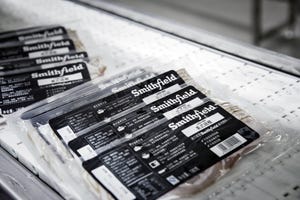December 15, 2014

The U.S. Department of Agriculture’s (USDA) Animal and Plant Health Inspection Service (APHIS) has opened a 45-day public comment period for the Draft Environmental Impact Statement for the APHIS Feral Swine Damage Management Program and is encouraging response from stakeholders at all levels.
The Draft Environmental Impact Statement (DEIS) evaluates strategies to manage threats to human and animal health and address the increasing damage associated with expanding populations of feral swine. The DEIS reviews the potential environmental effects of alternatives for reducing feral swine damage and will be available for public review and comment for 45 days following the date of publication in the Federal Register by the Environmental Protection Agency (EPA).
Feral swine have expanded their range from 17 to 39 states in the last 30 years and cause damage to crops, kill young livestock, destroy property, harm natural resources and carry diseases that threaten other animals as well as people and water supplies. They cause $1.5 billion in annual damage and control costs and the diseases these animals carry present a real threat to our swine populations. Feral swine are able to carry and transmit up to 30 diseases and 37 different parasites to livestock, people, pets and wildlife.
APHIS’s Wildlife Services (WS) program is proposing to lead a national approach to reduce feral swine damage to agricultural, cultural, natural, and property resources, and human health and safety throughout the United States and territories wherever feral swine are found. Before making a decision on the best way to manage feral swine damage, the National Environmental Policy Act (NEPA) requires that APHIS evaluate the potential impacts to the environment associated with the national strategies.
Beginning with a 2013 public meeting, APHIS has involve the general public, tribal governments, APHIS stakeholders, and minority and historically underserved communities to help identify alternatives and issues to evaluate in the EIS. APHIS has worked on the analysis with cooperating agencies including USDA’s Forest Service; the U.S. Department of the Interior’s (USDI) Bureau of Land Management, National Park Service, and National Invasive Species Council; the Association of Fish and Wildlife Agencies; and the National Association of State Departments of Agriculture. USDI’s Fish and Wildlife Service and USDA’s Natural Resources Conservation Service have also participated in the preparation of the DEIS.
The DEIS considers five alternatives, all of which incorporate state, territorial and tribal goals, for managing feral swine:
No change from current WS operations;
A nationally coordinated and multi-pronged WS response to reduce and/or eliminate the damage inflicted by feral swine;
Improving the baseline capacity for feral swine damage management of all WS state programs based on feral swine populations and maximizing cost-share opportunities for operational management with partners and cooperators;
Focusing all available WS resources on national and strategic local projects selected for their ability to help achieve national goals of containing and eradicating feral swine;
A federal grant program.
APHIS identifies alternative two (2) as the preferred alternative in the draft EIS.
APHIS anticipates that the EPA will publish a notice that APHIS’s DEIS is available for public review in the Federal Register in December. A copy of the DEIS provided to the EPA can be reviewed at www.regulations.gov/#!documentDetail;D=APHIS-2013-0031-0063. APHIS encourages public input on its DEIS and is contacting, in writing and electronically, previous commenters and other stakeholders to receive comments. APHIS will consider all public comments submitted during this 45-day period before issuing a final EIS.
APHIS will accept comments on the DEIS by either of these two methods:
Federal eRulemaking Portal: www.regulations.gov/#!docketDetail;D=APHIS-2013-0031
Postal mail/commercial delivery: Send your comment to Project Managers, Feral Swine EIS, USDA APHIS-WS, 732 Lois Drive, Sun Prairie, WI 53590.
For further information, contact Kimberly Wagner, Staff Wildlife Biologist, Wildlife Services, APHIS, 732 Lois Drive, Sun Prairie, WI 53590; (608) 837-2727.
You May Also Like


